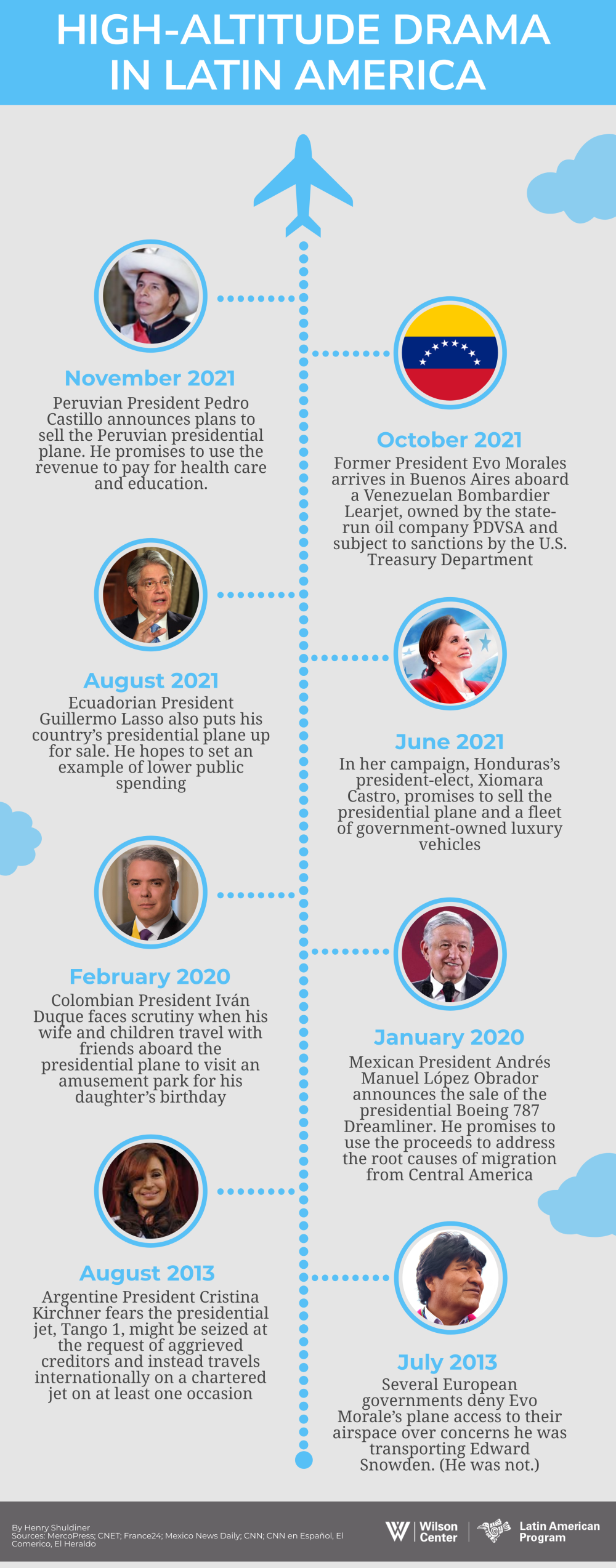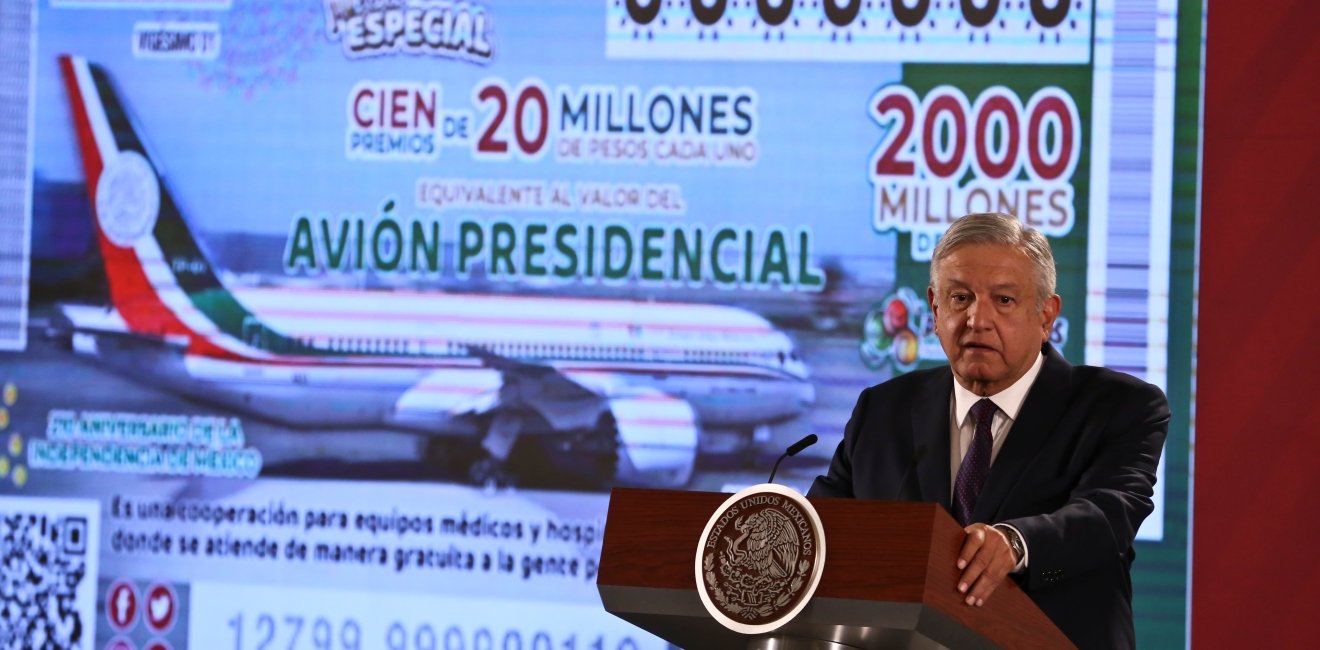
A blog of the Latin America Program
Peru’s president, Pedro Castillo, recently made headlines after announcing plans to sell the Peruvian presidential plane, an aging Boeing 737. He followed his Mexican counterpart, Andrés Manuel López Obrador, who in 2020 announced his intention to auction off the presidential Boeing 787 Dreamliner for $130 million. Demand for presidential jets might be small, but supply is growing fast. In June, Honduras’s leftist president-elect, Xiomara Castro, said she too would divest of the presidential plane. In August, Ecuador’s new leader, the conservative Guillermo Lasso, promised to do the same.
These aviation yard sales are mostly symbolic acts, but Latin American leaders have a sometimes turbulent history in the friendly skies. In November, former Bolivian President Evo Morales landed in Buenos Aires aboard a Venezuelan Bombardier Learjet aircraft that belonged to Venezuela’s state-owned oil company PDVSA and was subject to U.S. sanctions. Morales’s air travel previously caused controversy in July 2013, when several European governments denied the Bolivian presidential plane access to their airspace amid unsubstantiated suspicions that he was transporting Edward Snowden.

The same year, Argentine President Cristina Kirchner was reportedly forced to charter a private jet out of concerns the presidential plane, Tango 1, might be seized by hedge funds seeking repayment on billions of dollars in defaulted sovereign debt. In a global hunt for Argentine government assets, the investors had previously got their hands on the Libertad, a three-mast tall ship seized from the Argentine Navy in a Ghanaian port.
These days, Latin American leaders eschewing private jets regard the planes as symbols of overspending, and even corruption. López Obrador travels on commercial airlines, and Castillo has prohibited first-class air travel for all government officials. In Mexico, the savings from ditching the presidential plane will supposedly fund investments in Central America designed to reduce migration. In Peru, Castillo says his low-key travel style will free up cash for health and education.
Author


Latin America Program
The Wilson Center’s prestigious Latin America Program provides non-partisan expertise to a broad community of decision makers in the United States and Latin America on critical policy issues facing the Hemisphere. The Program provides insightful and actionable research for policymakers, private sector leaders, journalists, and public intellectuals in the United States and Latin America. To bridge the gap between scholarship and policy action, it fosters new inquiry, sponsors high-level public and private meetings among multiple stakeholders, and explores policy options to improve outcomes for citizens throughout the Americas. Drawing on the Wilson Center’s strength as the nation’s key non-partisan policy forum, the Program serves as a trusted source of analysis and a vital point of contact between the worlds of scholarship and action. Read more

Explore More in Weekly Asado
Browse Weekly Asado
Dengue Haunts South America’s Summers

Lessons from Costa Rica’s Economic Transformation

Women and Latin America’s Digital Revolution

